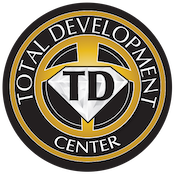Weighing the Pros and Cons of FAFSA: Navigating Financial Aid Opportunities

When it comes to pursuing higher education, financial considerations play a pivotal role. The Free Application for Federal Student Aid (FAFSA) is a cornerstone in the college financial aid landscape. By delving into the pros and cons of FAFSA, students and their families can gain a comprehensive understanding of its impact on their financial opportunities. In this article, we’ll explore the advantages and challenges associated with FAFSA, empowering students to make informed decisions about their educational journey.
The Pros of FAFSA
Access to Financial Aid
FAFSA opens the doors to a range of federal financial aid programs, including grants, loans, and work-study opportunities, making higher education more attainable for students from diverse economic backgrounds.
Determination of Need-Based Aid
FAFSA assesses the financial need of students and their families, enabling colleges and universities to award need-based aid packages that address individual financial circumstances.
Qualification for Federal Grants
FAFSA eligibility can lead to grants like the Pell Grant, which don’t require repayment. These grants can significantly reduce the financial burden of college expenses.
Federal Student Loans
FAFSA is a prerequisite for federal student loans, which often have more favorable interest rates and repayment terms compared to private loans.
Financial Aid Awareness
Completing FAFSA raises awareness about available financial aid options and encourages students to actively explore various avenues for funding their education.
The Cons of FAFSA
Complex Application Process
FAFSA can be intricate and time-consuming, requiring extensive financial documentation and information. This complexity can deter some families from completing the application.
Early Deadlines
FAFSA has strict deadlines, which can create challenges for students who need more time to gather required financial information or documents.
Limited Accessibility
Some students and families might face barriers to accessing and understanding the application, particularly if they lack resources or guidance.
Income Reporting Challenges
The use of prior-prior year (PPY) income can lead to discrepancies in financial information due to changes in circumstances, potentially affecting aid eligibility.
Dependency Status Complexity
Determining dependency status can be complex, especially for non-traditional students or those with unique family situations.
Maximizing FAFSA’s Benefits
Early Submission
Submitting FAFSA as early as possible maximizes the chances of receiving aid, as some programs have limited funds allocated on a first-come, first-served basis.
Accurate Reporting
Ensure accurate and thorough reporting of financial information. Any discrepancies can impact aid eligibility and processing times.
Appealing Aid Packages
If you feel your financial aid package doesn’t adequately address your needs, consider contacting the financial aid office to discuss options for appealing the award.
Regular Updates
Stay informed about changes to FAFSA guidelines and deadlines, as well as any revisions to federal financial aid programs.
Supplementary Aid Applications
In addition to FAFSA, research and apply for other aid programs, scholarships, and grants offered by colleges and external organizations.
What Parents Need to Know
Collaborative Effort
FAFSA requires collaboration between students and their parents. Parents need to provide accurate financial information and support their children throughout the application process.
Dependency Determination
Understand how FAFSA determines a student’s dependency status. This impacts which financial information is required and who needs to provide it.
Parental Contribution
FAFSA calculates an Expected Family Contribution (EFC) based on parental income and assets. This information determines a student’s eligibility for need-based aid.
Financial Documentation
Parents should gather necessary financial documents, such as tax returns and bank statements, to accurately complete the application. The IRS Data Retrieval Tool simplifies this process.
Impact on Family Finances
Completing FAFSA can shed light on a family’s financial situation. It’s an opportunity to discuss college costs, expectations, and potential strategies for covering expenses.
Special Circumstances
If there are unique financial circumstances not reflected in the application, parents can reach out to the college’s financial aid office to discuss adjustments or appeals.
Planning for College Costs
Parents can use FAFSA results to estimate potential aid packages and evaluate the affordability of colleges on their child’s list.
Understanding Financial Aid Offers
Parents should understand the components of financial aid packages, including grants, loans, and work-study opportunities. Compare offers to make informed decisions. Learn how to read your offer here.
Renewal Process
FAFSA needs to be renewed each year. Parents and students must stay informed about deadlines and changes in the renewal process.
Fostering Independence
As parents guide their children through the pros and cons of FAFSA, they also encourage financial literacy, responsibility, and independence.
Ultimately, maximizing the benefits of FAFSA requires a proactive and informed approach.
By submitting applications early, reporting accurate information, appealing for adequate aid packages, and staying updated on relevant changes, students can harness the full potential of financial aid opportunities.
Equally important, parents play a vital role in supporting their child’s FAFSA journey, nurturing financial literacy and contributing to the overarching goal of securing higher education.
The journey through the pros and cons of FAFSA is a partnership between students, families, and educational institutions. It’s a journey of empowerment, as students gain access to education that might have otherwise been out of reach. By understanding the dynamic interplay between FAFSA’s advantages and limitations, students can confidently navigate the path to higher education, equipped with the financial resources necessary to transform aspirations into achievements.
